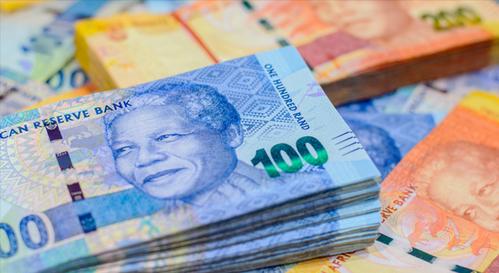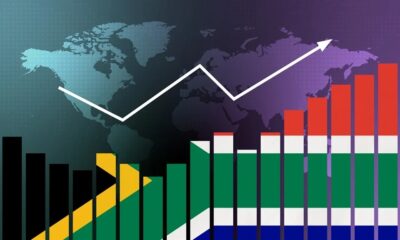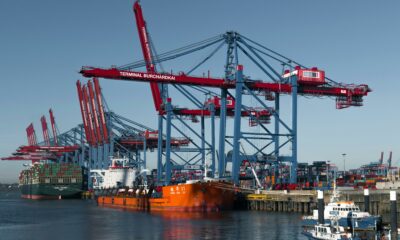411
South Africa on the Brink: Debt Crisis and Recession Fears Mount

South Africa is rushing toward a severe financial disaster, with ballooning debt levels, sluggish economic growth, and unsustainable government spending raising alarm bells. According to Efficient Group chief economist Dawie Roodt, without swift and effective intervention, the country could face a collapse of its bond market, surging interest rates, and a deep recession that affects every citizen.
Over the past 16 years, South Africa’s fiscal health has deteriorated steadily. The state has consistently run budget deficits funded by debt, pushing the country’s debt-to-GDP ratio from 26% in 2009 to around 76% in 2025. But Roodt warns that this figure doesn’t tell the full story.
“When factoring in the debts of state-owned enterprises and local governments, South Africa’s real debt-to-GDP ratio is closer to 95%,” Roodt said.
This year alone, the country will spend R424.9 billion on debt-service costs. That means 22 cents out of every rand collected in taxes goes straight toward paying off debt—leaving little room for development or service delivery.
Government Promises Reform
Finance Minister Enoch Godongwana insists that the National Treasury has a plan. He says the government’s fiscal strategy is focused on stabilizing debt, increasing revenue, protecting against economic shocks, and accelerating investment and growth.
According to Godongwana, the debt-to-GDP ratio will peak at 76.2% in 2025/26 before stabilizing, with debt-service costs reaching their high point this year at 21.7% of revenue. He also projects that the consolidated budget deficit will shrink from 5% of GDP this year to 3.5% by 2027/28.
But Roodt remains unconvinced.
Growth Estimates Under Fire
At the heart of the government’s recovery strategy is its prediction of a 1.9% economic growth rate in 2025. However, this forecast stands in stark contrast to projections from the International Monetary Fund (IMF), which recently cut its outlook for South Africa to just 1%. Roodt agrees with the IMF and says that even this figure might be too optimistic.
“This growth is very bad,” Roodt said. “The finance minister depends on economic growth to fund South Africa’s massive state machinery. Without it, revenue collection targets will not be met, and the budget will fall apart.”
A Looming Collapse
If revenue falls short, the government may be forced to borrow even more, pushing the debt-to-GDP ratio past critical thresholds. This, Roodt warns, could trigger a catastrophic collapse in the bond market.
“When the bond market goes, interest rates will surge—possibly up to 25%. The rand will crash. Banks will bleed. Insurance and equity markets will plunge. Every South African will become significantly poorer,” he warned.
In such a scenario, the South African Reserve Bank would be forced to raise interest rates to fight off inflation triggered by a weaker rand and higher fuel prices—plunging the economy into a tailspin.
“The only way to avoid this nightmare is through decisive, disciplined, and immediate reform,” Roodt said. “If we don’t fix our public finances now, we are heading for disaster.”
{Source: BusinessTech}
Follow Joburg ETC on Facebook, Twitter , TikTok and Instagram
For more News in Johannesburg, visit joburgetc.com


























